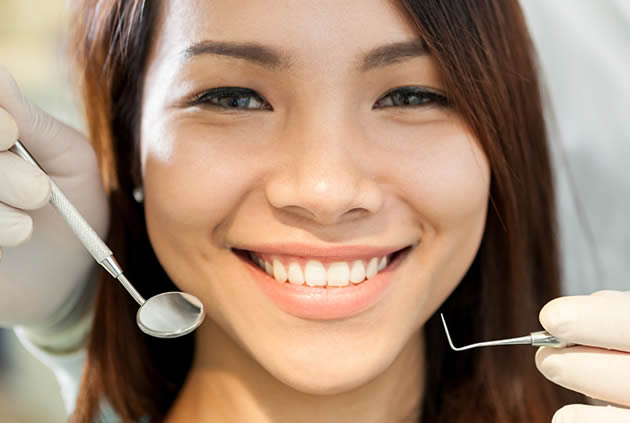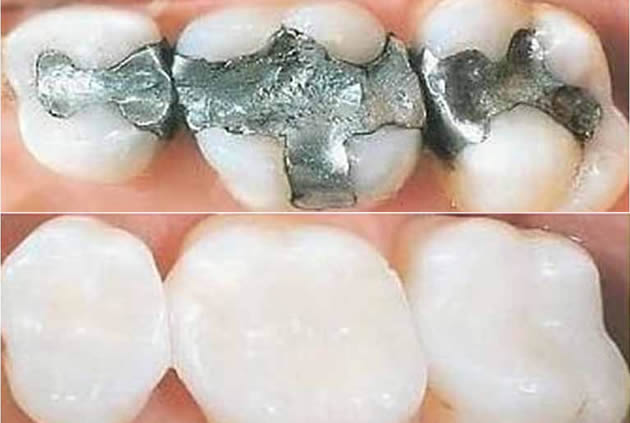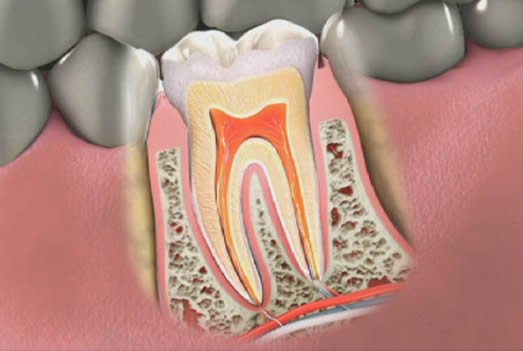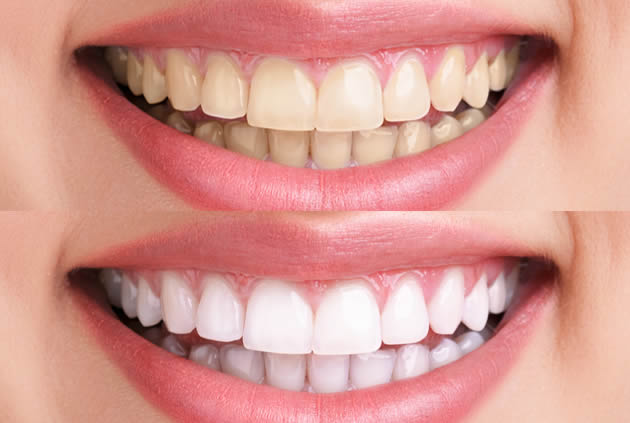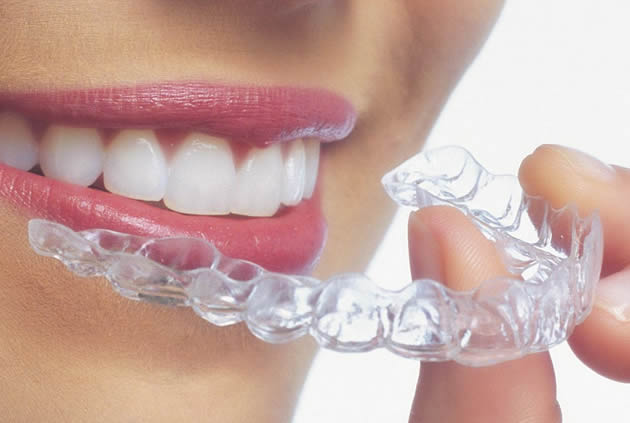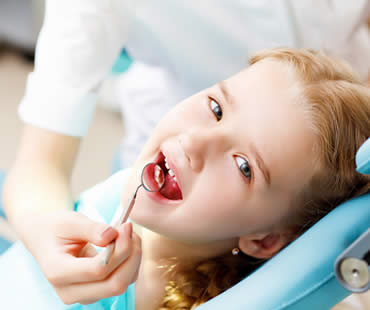
Finding the right dentist is an important decision because it’s a healthcare relationship that can last a lifetime. The need for dental care starts around age one and continues through senior adulthood. For routine dental care, you might choose to see a family dentist or a general dentist. Although there are some similarities, the two types of dentists have some unique aspects.
Services:
Both types of dentists offer routine services that are common to oral health care. This includes examinations, cleanings, x-rays, and fluoride treatments. Instructing patients about dental hygiene such as proper brushing and flossing is part of most family and general dentistry practices as well. Poor oral care can cause decay, infections, gum disease, or other problems. Both types of dentists also offer treatment for when problems arise, such as dental fillings.
Patients:
General dentists often cater to patients in a certain age range, but family dentists provide treatment for patients of all ages. Infants, children, adolescents, adults, and seniors are all able to seek oral health care from a family dentist. Each age group has unique needs and issues, but family dentists are skilled in caring for everyone.
Specializations:
Since they see all ages of patients, family dentists are skilled in a wide variety of procedures. They are able to diagnose and treat many oral health conditions, including gum disease and oral cancer. Typical procedures they offer include tooth extractions, root canals, fillings, crowns, bridges, and sealants. Some are able to perform specialty services like implants and veneers. Many patients enjoy being able to obtain treatment from their family dentist without having to see a specialist.
Benefits:
In addition to the benefit of getting a variety of treatments in one location, family dentists are also able to provide ongoing treatment for all household members. Children and parents go to the same location and can even request back-to-back appointments. Everyone learns the same dental care techniques that they can practice at home together. Family dentists encourage every member of the family to take pride in their oral health.
If you live in the Baltimore area contact us today
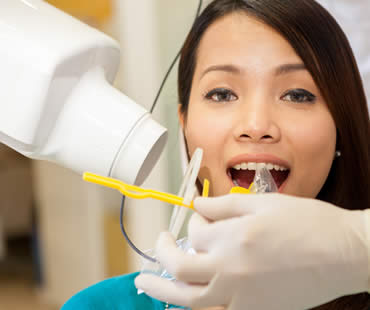
Your good health depends on taking excellent care of your teeth. Not only does proper dental care protect your oral health, but it also has a major impact on your overall health. Routine brushing and flossing are just the start. Establishing a relationship with a good general dentist is a vital part of taking care of both your dental health and your general health.
The focus of general dentistry is to stop minor dental problems before they become large health issues. While many dentists now offer cosmetic and restorative treatments, the main responsibility of a general dentist is preventative. Treating cavities, performing root canal treatment, and performing regular cleanings and examinations are some of the important things services by a general dentist.
Even if you take vigilant care of your teeth, only a qualified dentist or hygienist can remove the plaque and tartar that forms around and below your gum line. Regular checkups allow your general dentist to detect problems that could potentially lead to more serious issues. Caught in the early stages, potential trouble like gingivitis or periodontitis can be successfully treated before they become bigger concerns. General dentistry procedures like scaling, root planning, and root canal treatment can be used to save infected teeth.
Prevention is the key to a healthy smile. Taking proper care of your teeth at home and keeping a regular schedule of cleaning and exam appointments with your general dentist will go a long way towards saving your smile for years to come.
If you live in the Baltimore area contact us today

If you have a dental emergency, for example a knocked out tooth or jaw injury, contact your dentist in Baltimore right away for care. Quite often dental problems will develop out of office hours, so it’s a good idea to know how to treat them until you can visit your dentist. The following tips will help you take care of yourself or someone close:
- Bitten Cheeks, Lips or Gums. Gently rinse the affected area using cool water. Use light but firm pressure to apply a clean piece of gauze or washcloth to stop bleeding. An ice pack can help reduce swelling.
- Bleeding Gums. Bleeding gums are frequently caused by gum disease or through brushing your teeth too hard. Rinse your mouth with warm water and be sure to thoroughly brush and floss your teeth as this will help reduce infection and inflammation. Book an appointment with your family dentist in Baltimore for proper diagnosis and treatment.
- Canker Sores. It can help to wash the area with warm salt water. Avoid spicy or very hot foods until the canker sore begins to heal. If it fails to heal after two weeks, contact your dentist for advice.
- Cracked or Broken Tooth. Carefully rinse your mouth with warm salt water. Book an appointment with your dentist to have the tooth mended, and bring any broken pieces of tooth with you to the dental office.
- Loose Baby Tooth. Don’t attempt to pull out the tooth yourself, but instead encourage the child to gently wiggle it from side to side until it eventually comes out on its own.
- Teething Problems. Use a chilled teething ring or a cold washcloth to help soothe your baby’s gums. Gently rubbing the gums can also relieve some of the pressure.
Our dental office is located in Baltimore

Keeping your teeth and gums in good condition can mean the difference between being embarrassed to smile and being happy to display your pearly whites. Your smile is one of the first things people notice, so here are some things to add to your dental care routine so that your teeth are sparkling and healthy.
Brush after consuming staining items:
Avoid foods and drinks that are known to stain your teeth, such as coffee, red wine, colored gravies, and dark colas. Brush your teeth as soon as possible after consuming such items. If brushing isn’t possible, try eating an apple to help clean away staining residue.
Change your toothbrush:
Old bristles that are out of shape and worn harbor bacteria and don’t as good of a job as newer brushes. Change your toothbrush every three months, or when it starts to look worn. Remember to choose a brush with soft bristles for the best treatment of your teeth and gums.
Floss regularly:
Use dental floss at least once every day to clean between your teeth and along your gums. Carry floss with you so that you can quickly use it in private moments after a meal or bothersome snacks.
Use mouthwash:
Add mouthwash to your daily routine to help kill bacteria that your toothbrush doesn’t reach. It also can help improve your breath.
See your dentist:
No matter how well you care for your mouth, see your dentist every six months for checkups and professional cleanings. This will not only keep your teeth bright, it will catch any problems early in hopes of avoiding more extensive dental work in the future.
We look forward to seeing you in our Baltimore dental office
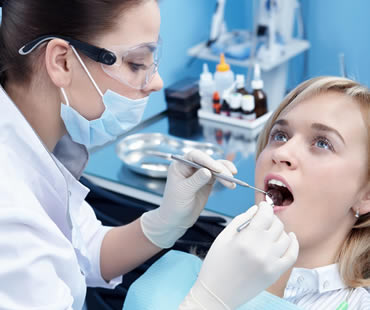
At least twice a year, you need to schedule an appointment with your dentist. These visits allow your dentist to assess you oral health, address any concerns you have, and look for signs of problems. Protecting your teeth and gums is a partnership between you and your dentist. For the best results, follow these helpful hints:
Find the right dentist in Baltimore
Selecting a provider and dental office that fits your personality will make you more likely to keep your appointments.
Provide an accurate health history
Although your dentist’s primary concern is your mouth, overall wellness can impact your dental health. For example, chronic health issues like diabetes and HIV can increase your risk for gum disease.
Bring a list of current medications
Your dentist needs to know the names and dosages of any medicine you take regularly. Certain medications, such as pain relievers, allergy medicines, and anti-depressants, can cause dry mouth, which may make you susceptible to dental problems.
Report any issues right away
Sometimes, you may develop a toothache or notice bleeding gums between your visits. Don’t ignore these symptoms because they may indicate bigger problems. The longer you wait to address any issues, the more time and money you will lose.
Share your fears
For some people, dental visits cause anxiety or fear. Let your dentist know exactly what worries you. Most doctors want you to feel relaxed and comfortable, so they will take time to answer your questions and help you feel at ease.
If you need a dentist in Baltimore contact us today

Using mouthwash is not a replacement for brushing and flossing, but instead is an addition to your oral care routine that can help you maintain healthy teeth and gums. If you’ve visited the mouthwash aisle at your local drugstore lately, you’ve seen that there is a giant selection of brands and types to choose from. It can be a bit overwhelming if you don’t know what purpose each one serves. Here is a description of the most common types of mouthwashes to help you choose.
Antiseptic
The goal of antiseptic mouthwash is to kill germs and bacteria in your mouth. It can also combat gum disease and persistent bad breath. Most dentists recommend that you discuss using antiseptic mouthwash with them before selecting this type, because they can help you decide if it’s needed for you. It can impact your sense of taste and can stain your teeth, so you want to be sure it’s helpful for you before using it.
Fluoride
The most common kind of mouthwash is fluoride, which utilizes the natural abilities of this mineral to strengthen your tooth enamel and prevent tooth decay and cavities.
Cosmetic
Designed to disguise bad breath, or halitosis, cosmetic mouthwash does not offer protection from problems like tooth decay. It can help keep your teeth clean and help rinse away food particles, but it is mainly for freshening your breath.
Combination
Mouthwash that combines purposes of the product is called combination mouthwash. It is meant to prevent tooth decay, maintain your oral health, and freshen your breath.
Prescription
Sometimes a prescription mouthwash is warranted for patients with gum disease or other types of decay. See your dentist to find out it this type of mouthwash would benefit you.
If you live in the Baltimore area and you need a general dentist, contact us today.












